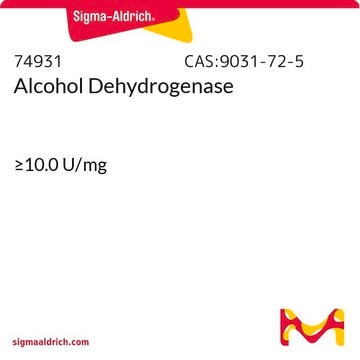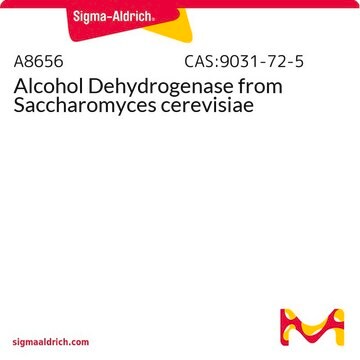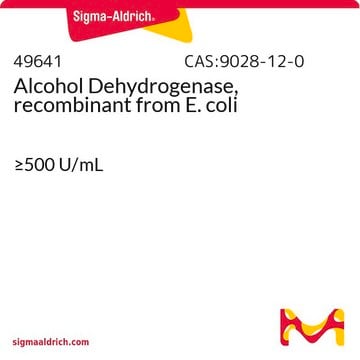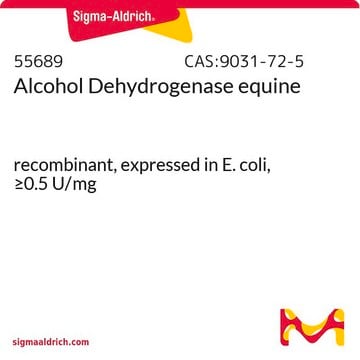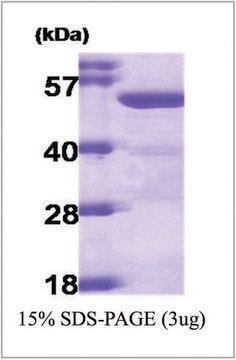MAK053
Alcohol Dehydrogenase Activity Assay Kit
sufficient for 100 colorimetric tests
About This Item
Empfohlene Produkte
Verwendung
sufficient for 100 colorimetric tests
Nachweisverfahren
colorimetric
Relevante Krankheit(en)
gastrointestinal diseases
Lagertemp.
−20°C
Angaben zum Gen
human ... ADH1A(124) , ADH1B(125) , ADH1C(126) , ADH4(127) , ADH5(128) , ADH6(130) , ADH7(131)
mouse ... ADH1C(11522) , ADH4(26876) , ADH5(11532) , ADH6A(69117) , ADH7(11529)
rat ... ADH1C(24172) , ADH4(29646) , ADH5(100145871) , ADH6(310903) , ADH6A(295498) , ADH7(171178)
Allgemeine Beschreibung
Anwendung
Eignung
Prinzip
Ersetzt durch
Signalwort
Danger
H-Sätze
Gefahreneinstufungen
Aquatic Chronic 3 - Eye Irrit. 2 - Flam. Liq. 2
Lagerklassenschlüssel
3 - Flammable liquids
Flammpunkt (°F)
53.6 °F - closed cup
Flammpunkt (°C)
12.0 °C - closed cup
Analysenzertifikate (COA)
Suchen Sie nach Analysenzertifikate (COA), indem Sie die Lot-/Chargennummer des Produkts eingeben. Lot- und Chargennummern sind auf dem Produktetikett hinter den Wörtern ‘Lot’ oder ‘Batch’ (Lot oder Charge) zu finden.
Besitzen Sie dieses Produkt bereits?
In der Dokumentenbibliothek finden Sie die Dokumentation zu den Produkten, die Sie kürzlich erworben haben.
Kunden haben sich ebenfalls angesehen
Unser Team von Wissenschaftlern verfügt über Erfahrung in allen Forschungsbereichen einschließlich Life Science, Materialwissenschaften, chemischer Synthese, Chromatographie, Analytik und vielen mehr..
Setzen Sie sich mit dem technischen Dienst in Verbindung.


